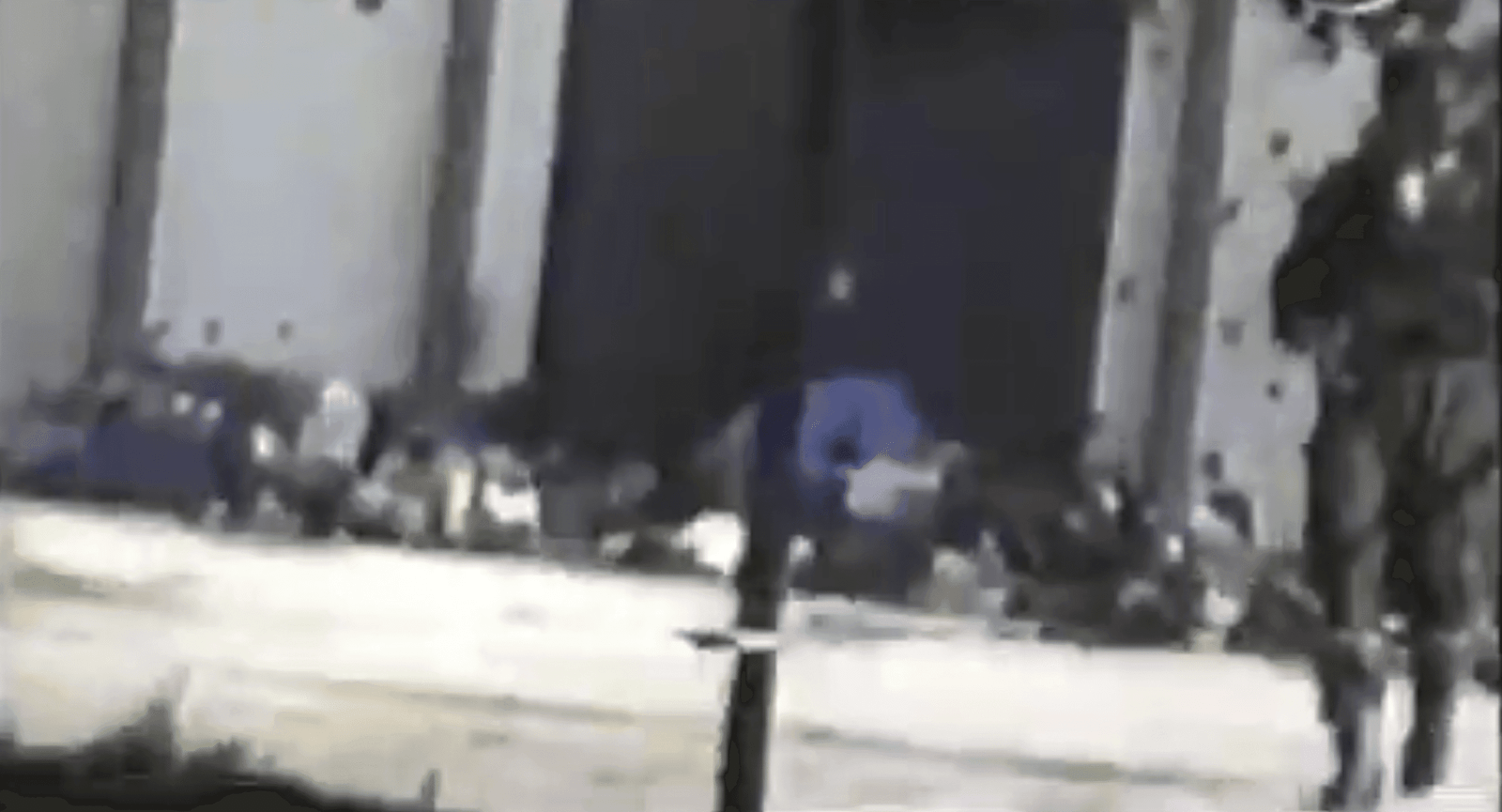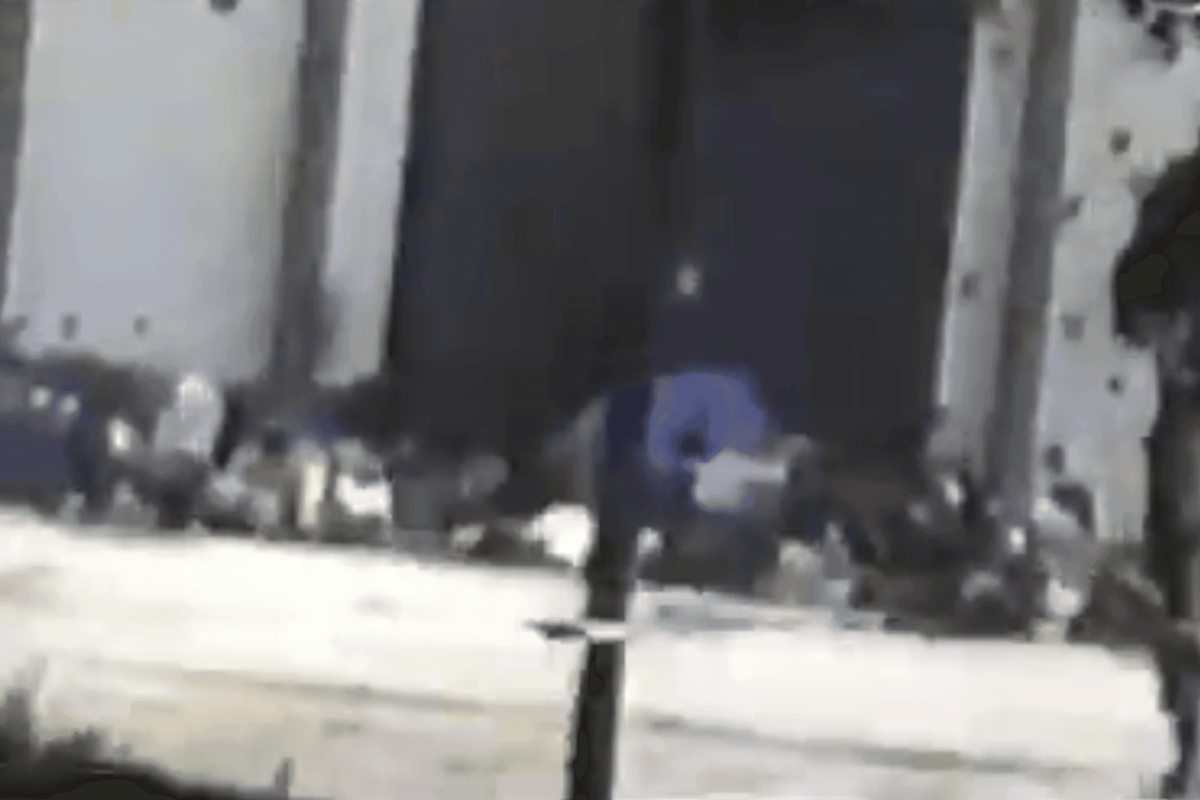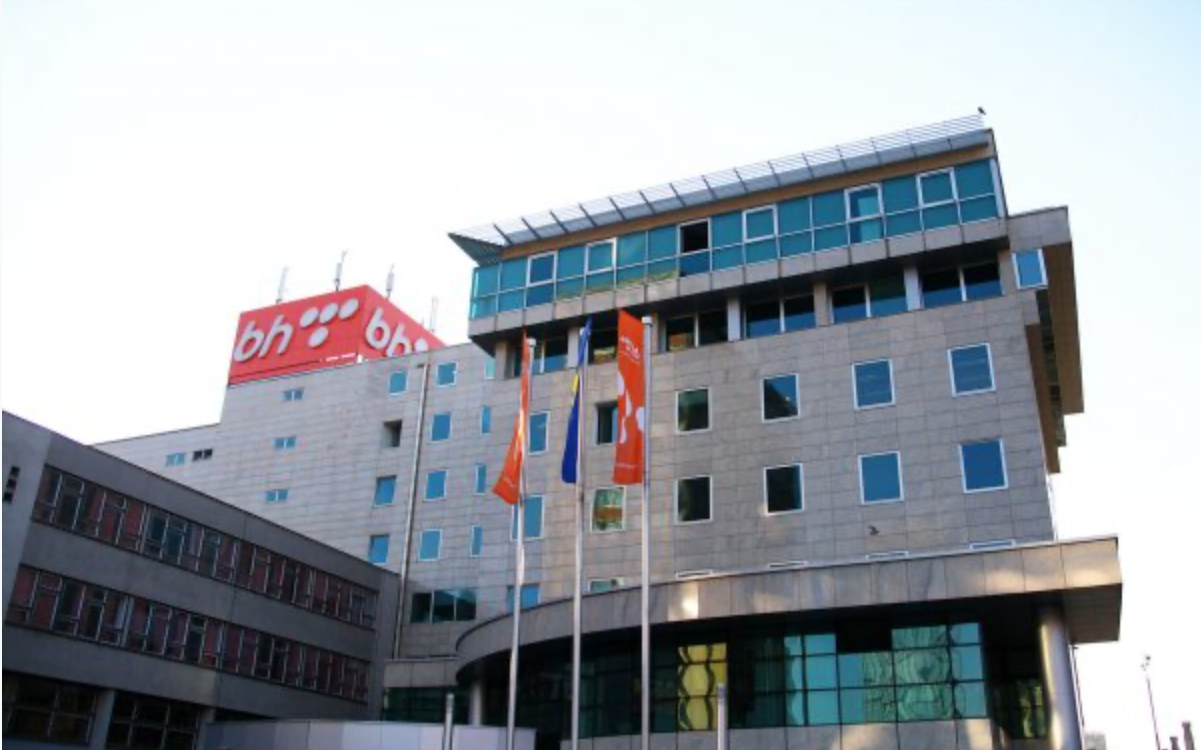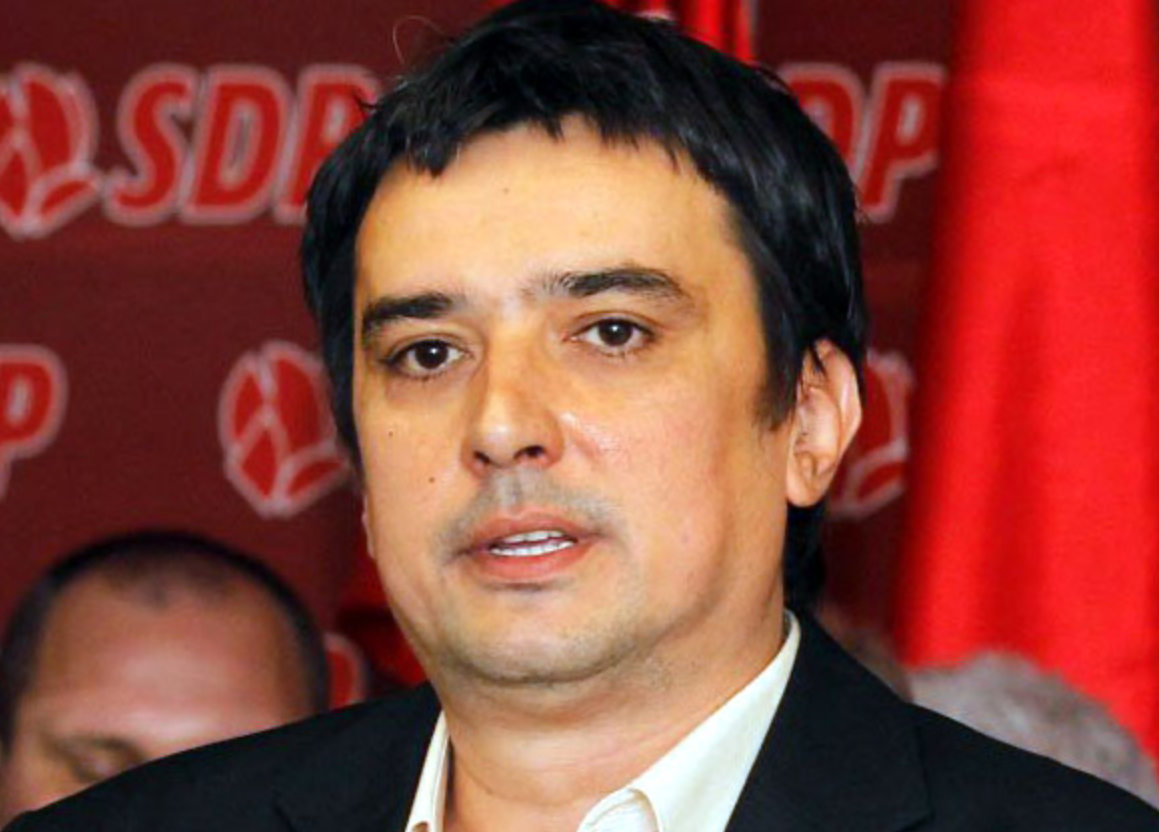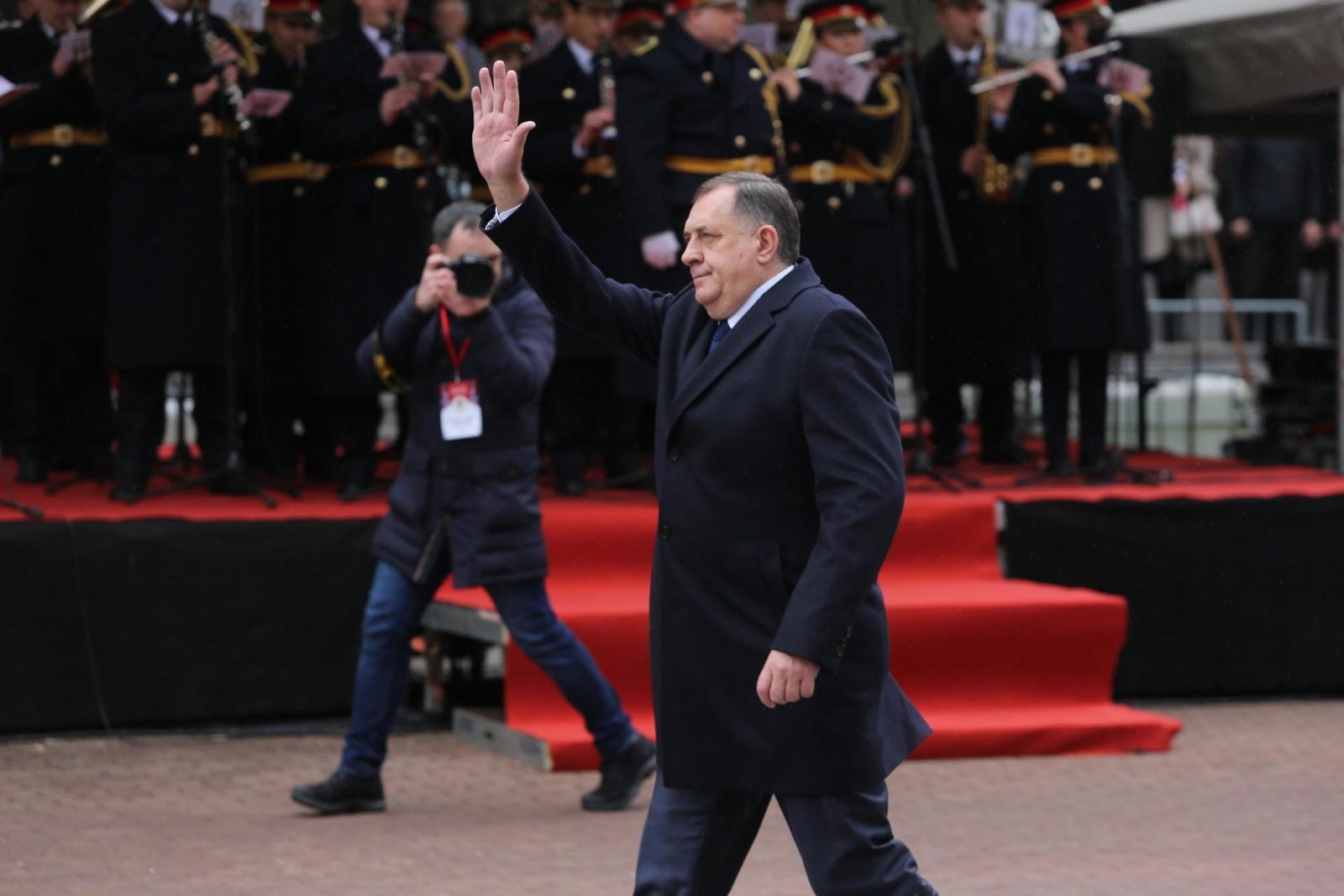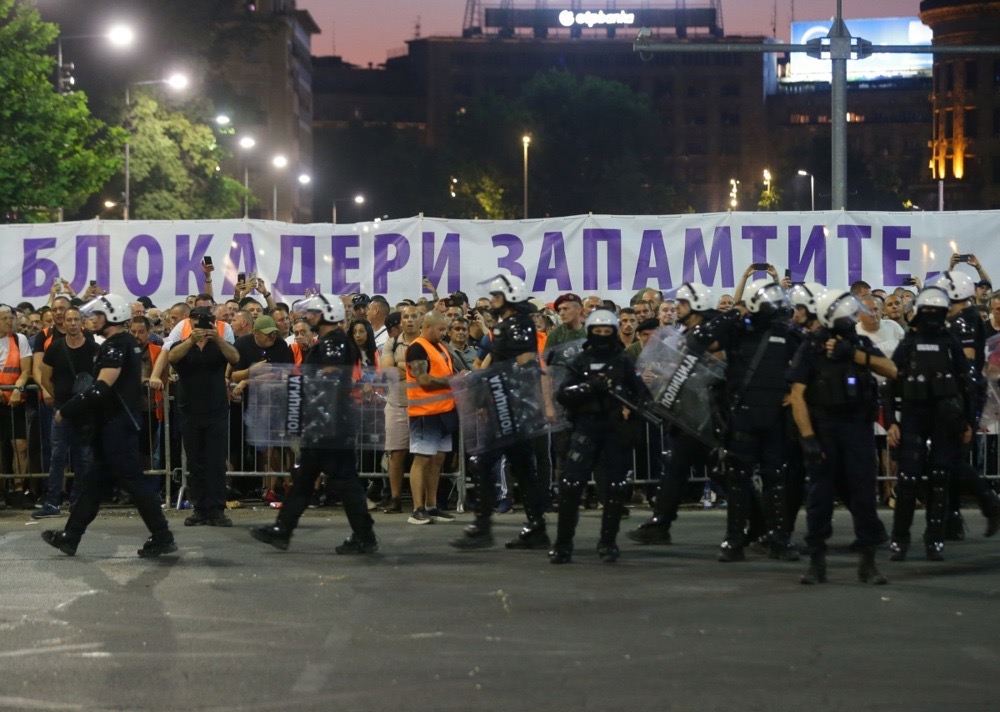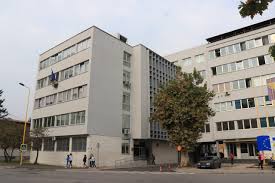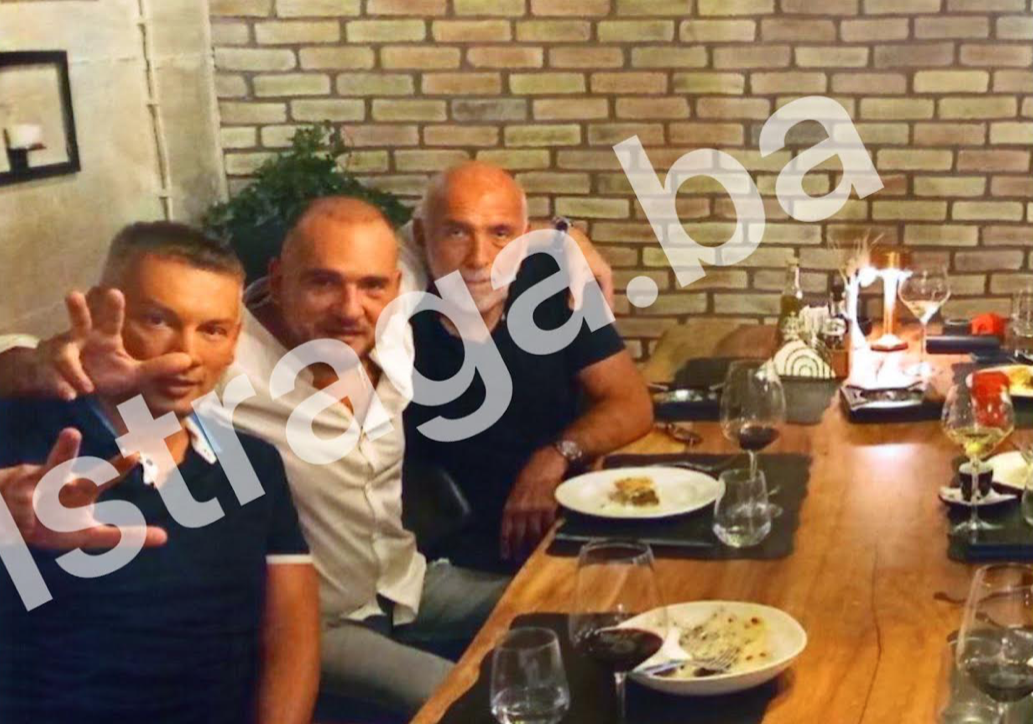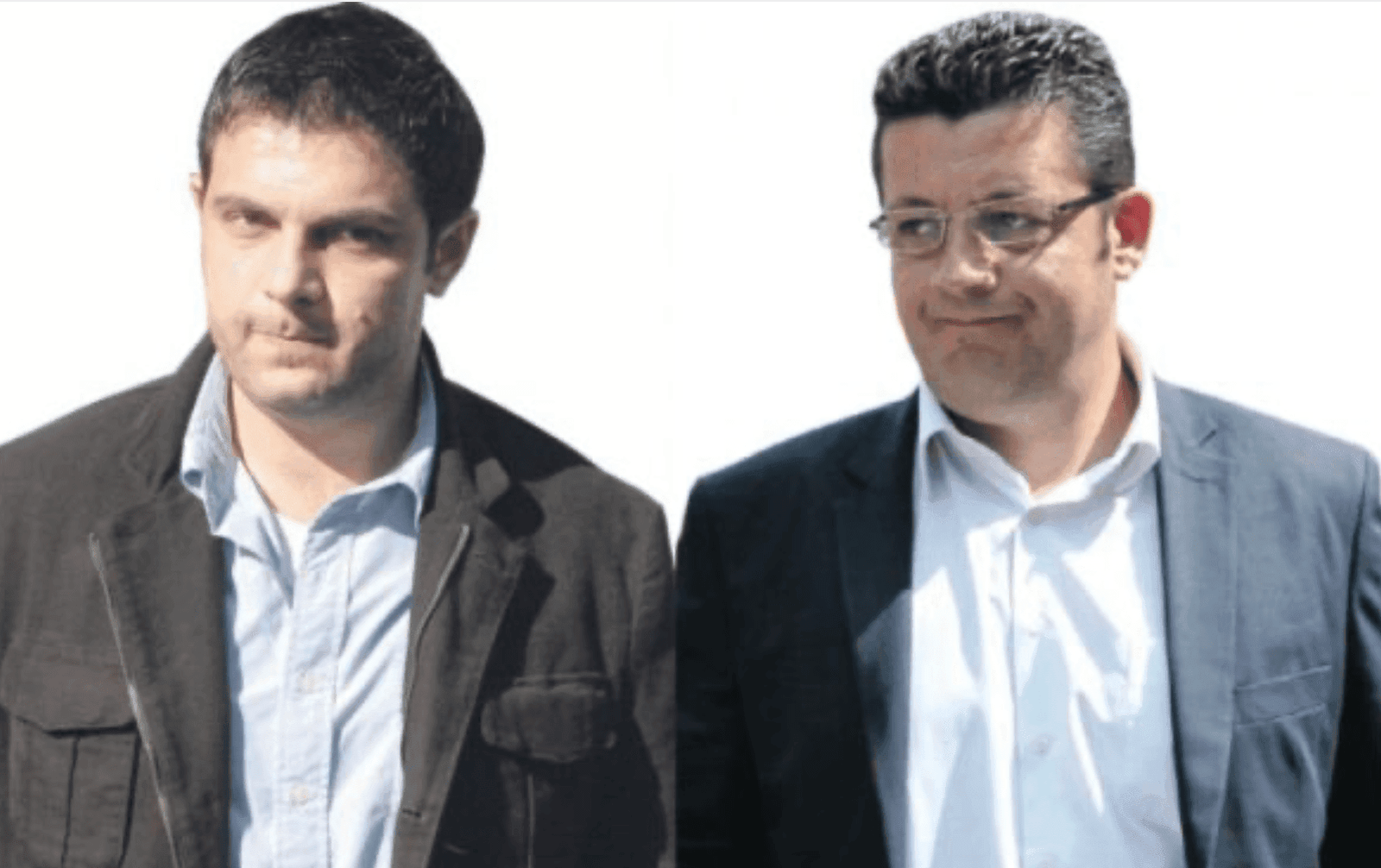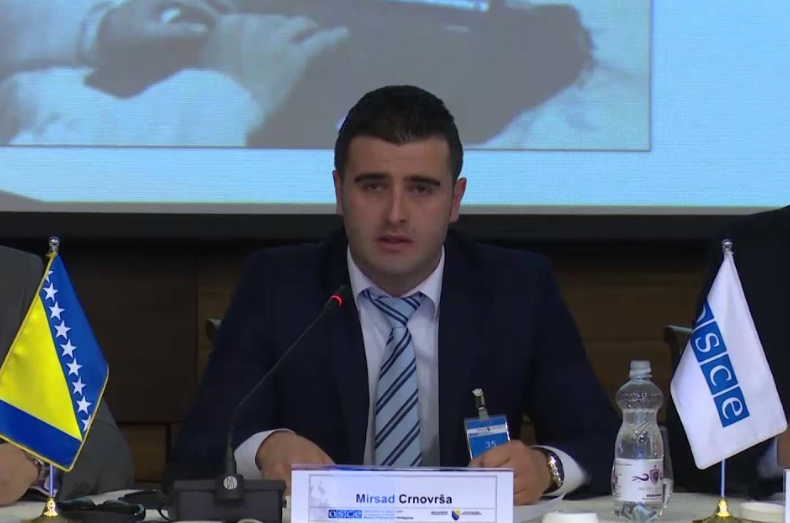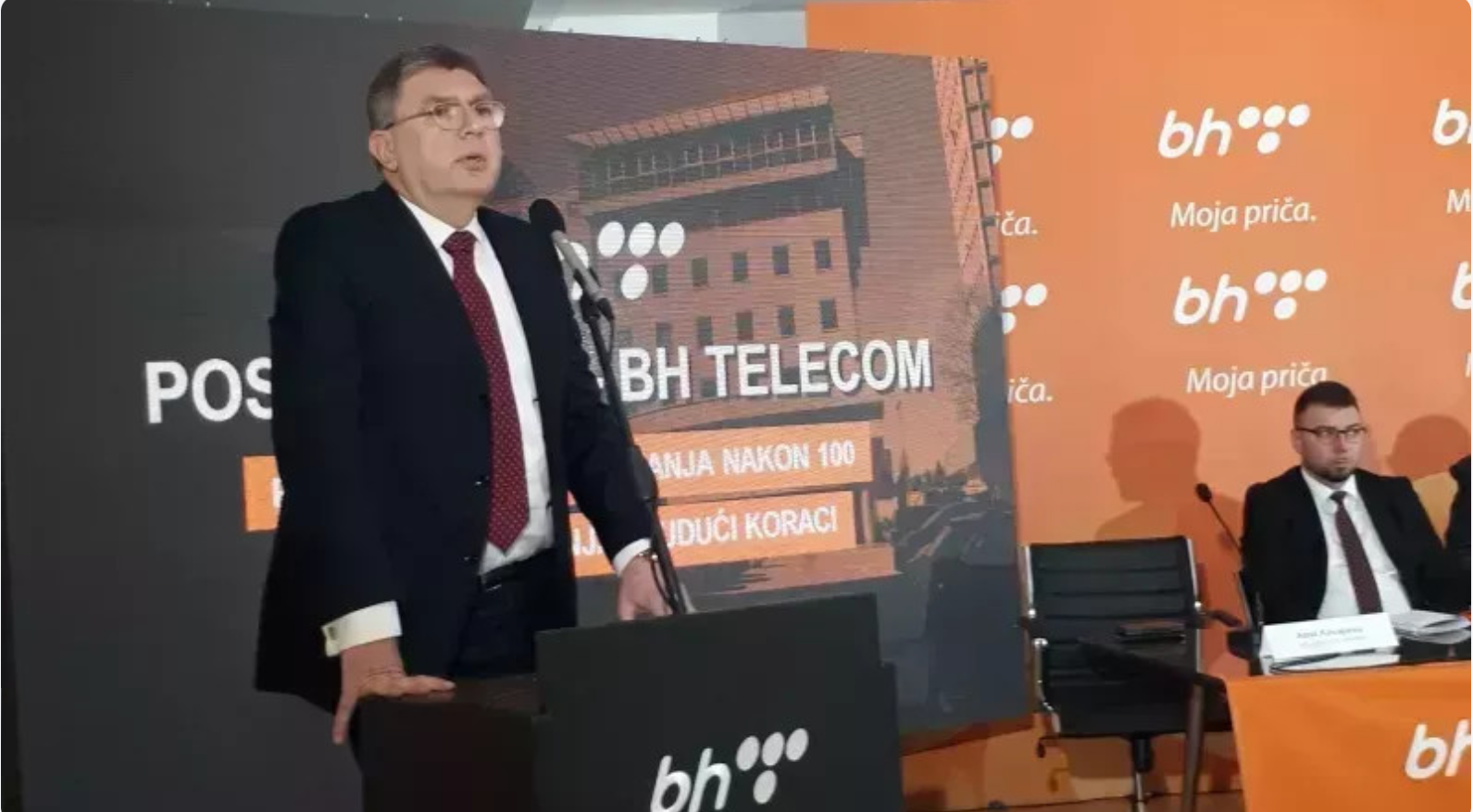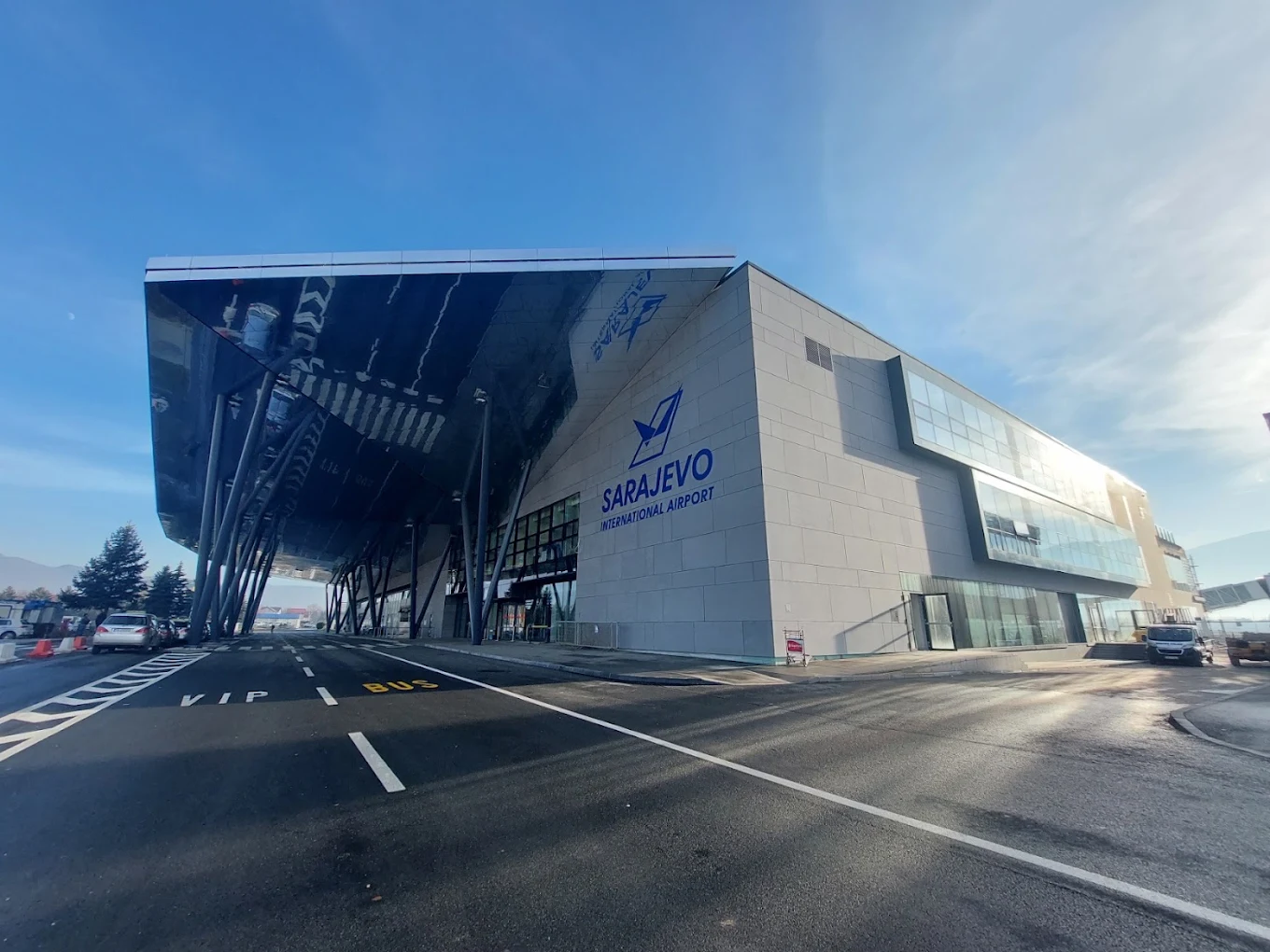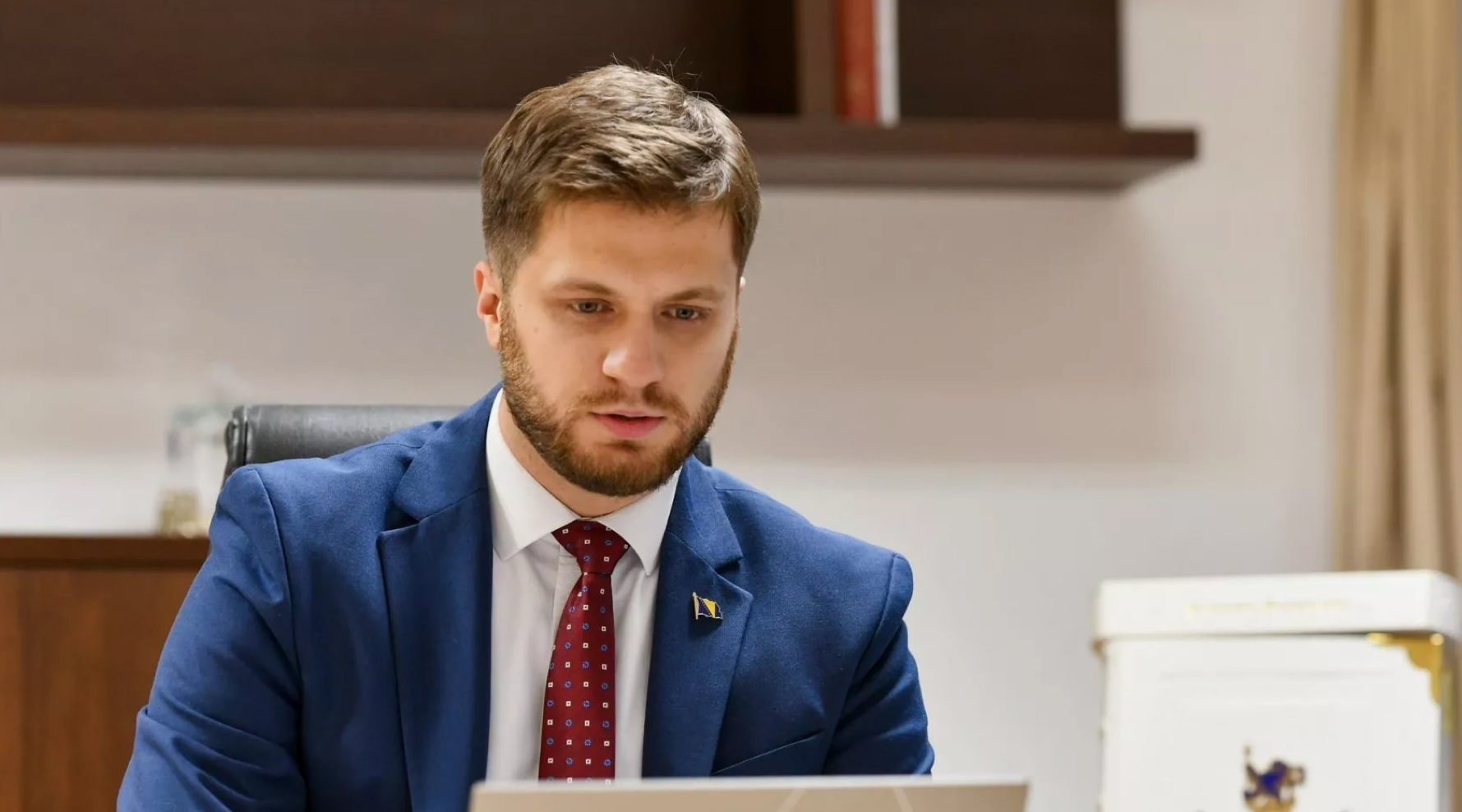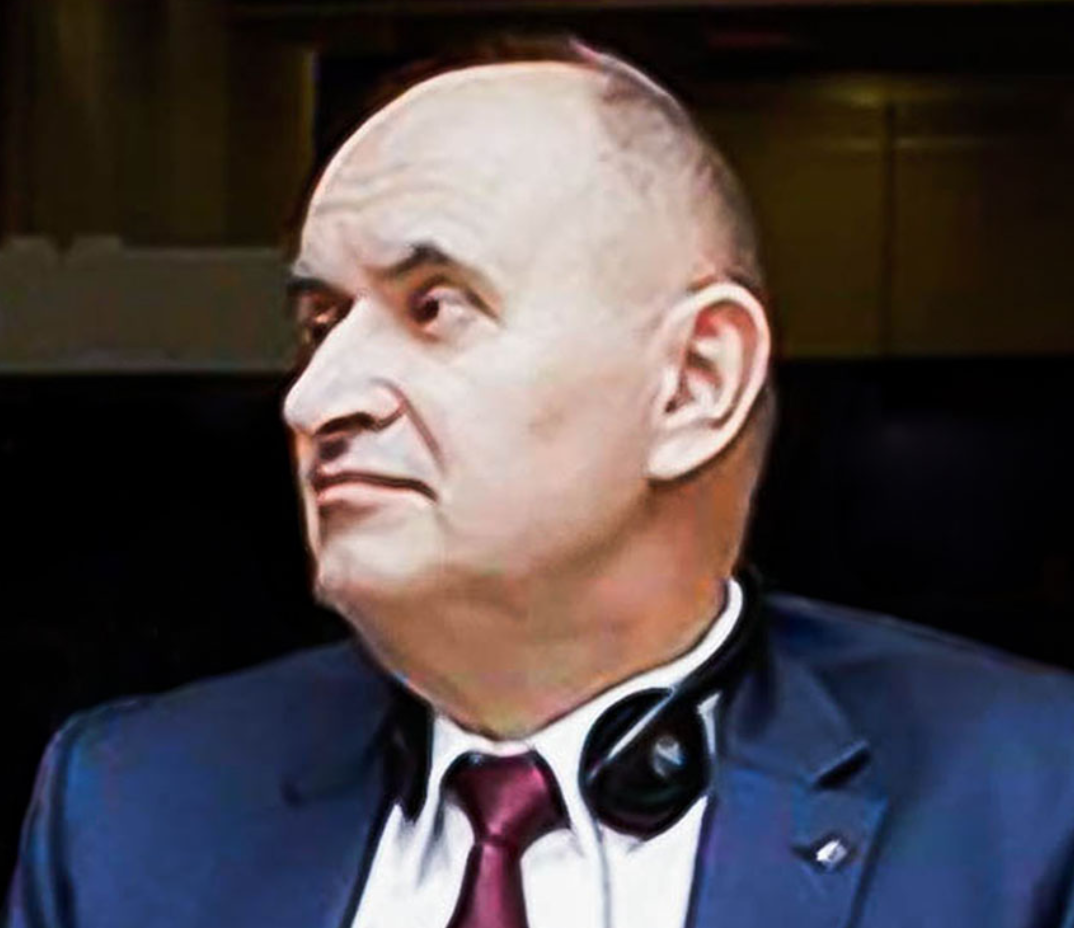Before they were brought into the building in Kravica, to boys and men from Srebrenica who were captured in the woods and gathered on the meadow in Sandici, spoke general Mladic himself. One of the survivors remembers his words.
“Your families, women, children and elders are evacuated”, he said, “and they are in Tuzla, Kladanj and Zivinice. And you will be exchanged there in two days and you will meet them. But now it is too hot for you. We’ll put you somewhere colder.”
All the time he spoke, says the witness, Mladic stood by a dead body, without showing any sign that he noticed that.
By hearing the general’s speech, the leading security officer of the Bratunac brigade Momir Nikolic seemed confused. To him, as will he testify later in Hague, officers who were that morning at the meeting with Mladic in the hotel Fontana in Bratunac, conveyed the order that the prisoners were to be killed. And now Mladic himself guarantees them safety!?
“Sir, what will happen to these people”, asked Nikolic, when they were left alone. But Mladic said nothing. Instead, he moved his hand from left to right, simulating the slaughter. “I understood”, said Nikolic, “that those men are going to be murdered.”
That the group will be killed knew Vaso Todorovic also, member of the Special unit of Bosnian Serb Police (“Sekovici unit”), who was also at the meadow in Sandici. He and other policemen were told, entire two days earlier, that they’ll help in the killings of prisoners, after the fall of Srebrenica.
Vaso Todorovic, as he will testify later in court, recognized among prisoners on the meadow his schoolmate Jusuf and “Zikrija from Pajici”. Zikrija asked him, he says, what will happen to prisoners, but Vaso didn’t dare to say.
There where is colder
That all began when one of the policemen, Krsto Dragicevic, entered the hangar in Kravica, full of the people brought from Sandici, to have a talk with someone he knew, the abovementioned Jusuf. Unlike “Zikrija from Pajici”, Jusuf knew what awaits them, he didn’t even have to ask. He decided that he will not just sit and wait. In one moment, he grabbed the gun from that policeman Krsto D. and shot him in the neck.
Two policemen, who were the closest to it, platoon commander Milenko Trifunovc and his deputy Rade Cuturic came and jumped on Jusuf trying to take the rifle. Cuturic grabbed the gun with his bare hands and singed himself, because while they were wrestling, Jusuf emptied the whole case. In the end, they managed to restrain him, take the gun and kill him.
After that, mass killings started. The decision that prisoners will be killed was made earlier, but the incident made the process happen sooner, making it messier in comparison to carefully organized executions in Orahovac, Petkovci, Branjevo, Kozluk, and Pilica.
As soon as Jusuf was killed, one of the Serb policemen Marko Milanovic started shooting with a machine gun at the mass of men in the warehouse. Soon other policemen joined. They were shooting up close, mostly from automatic rifles. When the cases were emptied they would make a pause, put new ones, and continued shooting. In the building full of prisoners rose chaos, you could hear screams and curses, and soon blood was everywhere. There was a few attempts to escape, but everyone who run out was killed.
One of the survivors, as will he testify in front of the court, put two bodies on top of himself, after the shooting started and that how protected himself till the end. Screams were harder to hear than the shooting and explosions. Inside you could see nothing, because of the dust. As soon as the shootings stopped, some of the survivors, too thirsty in all that heat and dust, would rise from the pile of the corpses and walk outside, urging for some water. But the killers, who were smoking cigarettes, ended their thirst with short burst-fires.
One of the policemen – protected witness D-5 – who informed us of these happenings, will admit guilt and will identify a number of executors. “Of Sekovici policemen”, he says, “was Shaggy, was Zgembo. Bombs were thrown by only two – the Duke and Shaggy.”
The Duke is Radomir Vukovic. He lived in Belgrade, working with ceramics. Zgembo is Zoran Tomic, who until arrest worked as security in one of the schools in Zvornik whose headmaster said before the court that “pupils loved him and called him by his nickname Zoka”.
On the other side, protected witness D-5 refused to shoot at the men in the Kravica hangar, and because of that his comrades-in-arms called him “pussy”, “traitor” and “coward”. For years after the massacre, he had conflicts with his neighbors, because of it, and all went as far as his kid being teased in school and marked as “a traitor’s child”.
The same (“You pussy why don't you shoot? Traitor, coward!”) was told to Vaso Todorovic, who, although refused to shoot, was sentenced to six years in prison, because he did, willingly, participate in bringing men and boys into the warehouse in Kravica, and was on guard while his colleagues, members of the special unit, were killing.
During the trial, his defense attorneys will claim multiple times that in Kravica there was no plan to kill, instead it was done as the revenge for “the incident with singed hands”.
The court will, in a case against Milos Stupar and others, conclude that this incident together with all other evidence, even further corroborates the existence of genocidal intent, because the killer of Krsto Dragicevic was found and killed even before the massacre began, which proves that the intention of the accused was not to kill individuals who did them wrong but to kill all imprisoned men and boys.
Finally, no prisoner rebelled on the other locations (Orahovac, Petkovci…), but they were killed all, exactly as Radovan Karadzic said on the 9th of July to the first man of the Bratunac government and his close friend Miroslav Deronjic, of what Deronjic will inform Hague Tribunal later: “Miroslav”, said the president of Republika Srpska Karadzic, “they all should be killed. Every man you can catch.”
Deserters
Unlike Radomir Vukovic, who after the genocide fled to Belgrade, where he lived his life as an ordinary citizen, Bozidar Kuvelja deserted to Serbia at the very beginning of the war.
Although, as he will testify, Muslim soldiers killed his father, Kuvelja didn't want to fight, but Belgrade authorities caught him and send him back across the Drina, where he was forcibly recruited as a member of Jahorina Training Centre, the police unit of Republika Srpska mostly composed from deserters.
Eventually, Bozidar Kuvelja will on the 13th of July as a member of the “deserter unit” come to Kravica, about six o'clock in the evening, where he will hear screams and see dead bodies in front of the warehouse.
Deserters will soon take over the job from the worn out “Sekovici unit.” As multiple of them will confirm, including Kuvelja, the killings lasted the whole night.
In the morning the commander of the unit, Nedjo Milidragovic, also called Nedjo The Butcher, approached the warehouse and began to explain to survivors that “what happened was a mistake and it should not had happen”. Then he called out the prisoners to exit onto the plateau to receive help.
About a hundred men exited. Many of them were wounded, and “the deserters” even gave them water. When they all went out, the bullying started again. Police officers made them sing chetnik [Serbian nationalistic] songs, and then lined up in four rows.
As we were informed, in the case against Bozidar Kuvelja, by two police officers – protected witnesses (KB-116 and KB-117), above mentioned Milidragovic asked for a machine gun, which in the absence of volunteers he gave to Kuvelja and ordered him to shoot. And Kuvelja did. Others started to shoot after him.
Soon the whole plateau was covered in corpses, and Kuvelja went among them to find survivors and end them.
When asked by the prosecutor did he killed, Kuvelja answered ambiguously: “I did. I shot above and below a lot. Was anybody hit, I don't know. I didn't see if I had… Everyone who was there had to shoot.”
That everyone who was there didn't have to shoot confirmed two protected witnesses (S-102 and S-116) during the trial of Dusko Jevic, commander of the Training Center unit. They till the end remained true to their deserter belief and refused to kill. Or so they say.
Children
As soon as the evening fell on 13th of July colonel Ljubisa Beara and Miroslav Deronjic started organizing the transport and burial of bodies. It was concluded that the workers of Utility Company ”Rad” and those from Civil protection Bratunac as soon as the next morning go to work.
Driver Krsto Simic testified that it was ordered from Bratunac brigade that he in a convoy of five trucks arrive in Kravica, where a pile of corpses awaited. Workers of Civil protection in blue uniforms, he says, put bodies in excavator bucket, then put them onto the truck. At one moment, although he was just a driver, Simic had to take over handling the excavator, because the man in charge Radenko Djurkovic ”couldn't endure this job mentally”.
The whole day, says Simic, they loaded the bodies, till the evening, taking them one by one because excavator couldn't go through the narrow door of the warehouse.
The chief of headquarters of Bratunac Civil protection Ljupko Ilic, who brought food and drinks to workers, testified that Krsto Simic came out of the excavator covered in sweat. He said hello and then asked for a drink. He didn't drink a lot but used it to wash his hands instead. Ilic, as he himself says, fainted when he looked inside and saw a warehouse full of corpses.
Workers took bodies to the Glogova, where a mass grave was dug. Two or three months later when US Government published satellite images of the mass graves locations, mostly the same people, Serb soldiers and workers, anew dug out the bodies and transported them to different locations in Zeleni Jadar.
Protected witness P-135, ethnic Serb, remembered the smell that came over Bratunac, when in the autumn of 1995, trucks drove through. “I remember sitting at home. The window was open in my room. I felt an unbelievable smell. I didn't… I assumed… I know what the smell of deteriorated human flesh is. The day after I heard the stories about how children saw on the street some legs, I don't know, parts of human bodies.”
Z ideology
Several days ago local authorities began the reconstruction of the hangar, intending to turn it into an enterprise. Given the proportions of crime that was committed in it, the building of Agricultural Cooperative in Kravica, shouldn't be anything else but a museum or a monument. The statement of Bratunac mayor Srdjan Rankic that ”people need factories, not cheap nationalistic demagogy and museums” is more malicious than moronic, considering that authorities in Bratunac for 27 years don't allow to install of any kind of memorial in Kravica.
Bratunac authorities had in the summer and autumn of 1995 actively participated in covering up of genocide, through its Civil protection and Utility Company “Rad ” that helped bury corpses to mass graves, in order to cover up a crime. The current decision of Bratunac authorities to ignore the will of the families of victims and to renovate the building and use it commercially is nothing else but continuing the same policy during peace times.
While we contemplate the causes of ruthlessness of Bratunac mayor, one should remember that two weeks before aggression toward Ukraine, the Russian ambassador in Bosnia visited Bratunac, and had meetings with authorities and members of “Eastern Alternative”, NGO that continuously glorifies Ratko Mladic, 11th July call “day of Srebrenica liberation”, and in the year of 2015, after Russian veto to British resolution on Srebrenica, covered the walls of the warehouse in Kravica with portraits of Vladimir Putin.
With open Russian support to humiliating victims of genocide and the indolent approach of Western governments in Bosnia, the ideology of letter Z doesn't have a reason to cease to flourish in Podrinje. The message that in places like Kravica instead of museums factories will be built, echoes in banality of evil from which it became, while Putin's army fills new mass graves with corpses of Ukrainian civilians.

